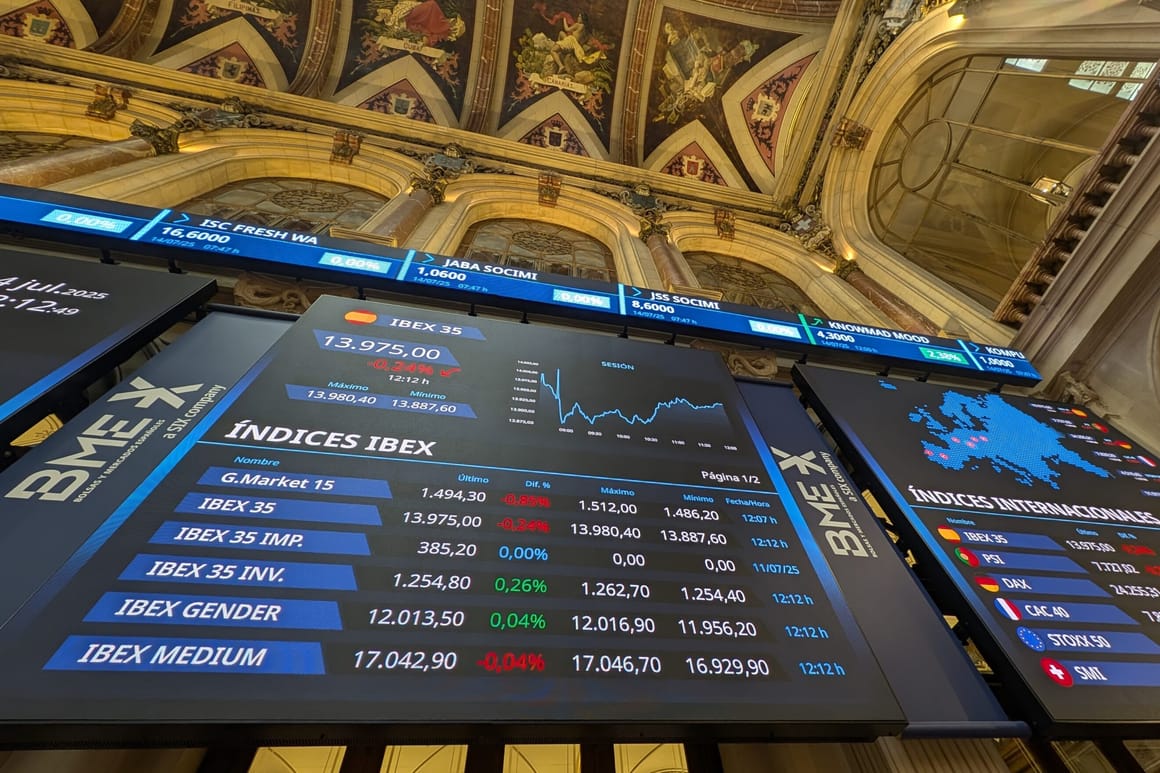
The European Commission recently announced plans for a major overhaul of financial market rules to boost private investment in the EU economy. Fostering a single investment market has long been a goal of the Commission as the EU struggles to fund its political priorities amidst tight national budgets and keep pace with rivals like the United States and China. This ambitious plan will set the stage for a clash between the Commission and EU governments, which are divided over the politically contentious issue of EU market regulation.
First, the Commission held a three-hour closed-door briefing on the 21st for national and European Parliament officials on the plan, currently scheduled for December. According to multiple officials present, the Commission plans to release a package of legislation to amend approximately 10 pieces of existing legislation, reshaping the rules of EU financial markets and how they are regulated. The existing laws to be amended include the EU's flagship financial market rules, MiFID and MiFIR; clearing house rules, EMIR; investment rules, AIFMD and the UCITS Directive; central securities depository rules, CSDR; crypto rules, MiCA; and regulations from market regulator ESMA. Second, the European Commission also plans to propose reforms to the way financial market firms are regulated. This issue has historically been highly political and largely blocked by national governments. Currently, most firms are regulated at the national level, but the Commission wants to shift more oversight to the European Securities and Markets Authority (ESMA), a Paris-based regulator. Discussions on the same issue reached an impasse at the EU leaders' summit in the spring of 2024, with a coalition of smaller countries, including Luxembourg and Ireland, blocking the French-led idea of more centralized regulation. The Commission currently wants to transfer the supervision of all crypto-asset service providers to ESMA. Furthermore, the Commission also wants to transfer the supervision of large cross-border stock exchanges, clearing houses, and central securities depositories to ESMA.
In addition, ESMA's governance and funding model will be reformed to reflect its expanded responsibilities. The Commission will introduce an independent executive board responsible for regulatory decisions, a departure from the current structure, which relies on a committee of national financial regulators as the key decision-maker. ESMA's funding will increase with industry-paid regulatory fees, while the proportion of funding from national regulators may decrease. However, the proposal is certain to be politically divisive. France is a major supporter of the centralized regulatory effort, but many smaller countries oppose the plan. Germany's stance is unclear, as it has traditionally opposed centralized regulation, but Chancellor Friedrich Merz and Finance Minister Lars Klingbeil have expressed positive sentiment towards the idea of a single EU stock exchange in recent weeks. Germany opposes centralized regulation of cryptocurrencies, which is part of the European Commission's plan. The market package is expected to be released in December and may be discussed at the EU leaders' summit in Brussels that same month.
Overall, the fundamental goal of this reform plan is to break down the fragmentation of financial markets within the EU and create a unified, efficient, and deep capital market. The ultimate goal is to attract investment, promote innovation, and enhance the EU's global competitiveness, particularly in the areas of green and digital transformation. The EU's financial market reform is an ambitious long-term strategy centered on achieving economies of scale through integration. It is not just a technical adjustment to financial rules; it is a key initiative concerning the EU's future economic sovereignty and strategic competitiveness. Although the road ahead is full of challenges, if successful, it will profoundly change Europe's financial landscape and inject new vitality into the European economy.

On January 7th local time, GameStop (GME.US) announced that the company's board of directors had approved a potential executive compensation package worth $3.54 billion, which was targeted at the company's CEO, Ryan Cohen. At the same time, this new compensation package set extremely high performance thresholds: Cohen, the CEO, needed to increase the company's market capitalization from $9.5 billion to $100 billion.
On January 7th local time, GameStop (GME.US) announced that…
According to the British media The Guardian, recently US Pr…
In today's era of deep integration of globalization and dig…
In early 2026, US President Trump forcibly took control of …
Recently, the corn market dynamics analysis released by Aus…
Donald Trump has proposed an "immediate" restriction on lar…